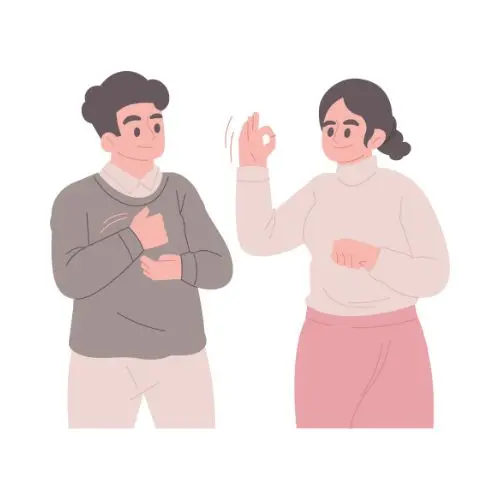Introduction
Chapman talks about how people feel love in one way or, sometimes, in two ways. If one partner in a relationship feels love one way, and the other feels it differently, the first partner may feel the second is not trying, even if they are trying hard.
After all the quizzes, counseling, and other surveys, this functional model still stands. This love model is not perfect, but it’s not the only useful one; it offers couples one of the most beautiful things one can ever give. To couples, it lets them express and use a language to communicate the things that make them feel loved.
A Brief Overview of the Five Love Languages
| Love Language | How People Feel Loved | Approx. % of U.S. Adults (rough estimate) | Casual Everyday Example |
|---|---|---|---|
| Words of Affirmation | Hearing specific words of encouragement & praise | 23–25% | “I was so proud of how you handled that meeting today.” |
| Acts of Service | Helpful actions that ease their load | 20–22% | Filling their car with gas before a long week |
| Receiving Gifts | Thoughtful tokens that say “I was thinking of you.” | 18–20% | Bringing home their favorite snack “just because.” |
| Quality Time | Undivided attention & shared experiences | 20–23% | A walk where both phones stay in pockets |
| Physical Touch | Non-sexual & sexual touch that feels connecting | 15–19% | A long hug the moment they walk through the door |
Words of Affirmation:
People who strongly love this language of encouragement and appreciation lit up the most when receiving specific words of love and compliments.
A recent 2023 study in the Journal of Social and Personal Relationships showed loving partners who made a daily habit of giving each other one simple, specific compliment and entry reported higher satisfaction towards each other.
Acts of Service:
Partners who view this love language through a lens of manifestation and action toward love view helpful behaviours as a task being taken off their “to-do” list.
This is the most common love language I see in the parenting class and in dual-income families where the parents have very little time to spend together.
Gift Giving
Not every gift is valuable, but every gift needs to have meaning. Giving a gift that represents the person in some way, and is a clear act of recognition and remembrance, is the best gift.
Quality Time
Being in someone’s presence is not the same as having someone sit beside you. Many of my clients report feeling the best after doing something for the first time together as a pair, be it a cooking class, a board game, or a new hiking trail, rather than the classic dinner date.
Physical Touch
I have come to understand and accept what other couples have told me as well. The information I received from the 2024 Kinsey Institute Survey corroborates what other couples told me. The survey states that having a lot of casual non-intimate contact with one’s partner, like just being near, light touches, a squeeze of a shoulder, or hugs, is more important for a relationship than the amount of sexual contact there is. Such touches help create a sense of closeness, safety, and happiness.
NOTE: The love languages can change with time.
The original version of the book did not go into as much depth as the later editions from Chapman. There is a range regarding primary love language.
- Service is often a top love language when children are involved.
- With loss of a loved one or during the prolonged period of poor health, the primary love language is usually Words of Affirmation or Physical Touch.
- During the empty nest phase, the all-time favourite tends to be Quality Time once again.
Your love language should be seen as a trait of your personality, like a thermostat that adjusts with the seasons of your life.
The Most Common Mismatch (and the Solution)

Alicia also explained that this is usually a one-sided issue, as the partners in question often express love the same way they desire to receive it.
For example:
He buys expensive jewelry every anniversary, as it is a reminder of how valuable she is to him. She is feeling tired but also hoping he would take the kids for a bit so she could have a quiet connection for at least 20 minutes.
There is a lot of love in the relationship, but neither of them can feel it.
The best way to remedy this problem is:
- Both partners take 5-10 minute quizzes individually on 5lovelanguages.com.
- Afterward, set a 1-minute timer for silence during which the couple must be in a distraction-free zone.
- Once that minute is over, everyone has the chance to complete the statement, “I feel most loved when you….”
Even though this may be the simplest thing I do, I would argue it is the most helpful. In my experience, this one intimate connection probably saves more relationships than anything else I do.
What about when you’re single

When you’re dating:
Notice the little things to figure out which love languages you value the most. That will most likely be your primary love language.
Friends and family:
Consider why one person in particular feels so much closer to you than the other members in your group.
Self-Love:
All you need to do is give yourself what you need the most in that moment.
Having more alone time (Quality Time), and/or getting more help with chores (Acts of Service), is more than alright.
Two real-life couples (with their permission):
Sarah and Mark have been married for 12 years.
- Sarah, Acts of Service.
- Mark, Words of Affirmation.
For years, Mark would write letters.
And Sarah would make big meals.
A year has gone by, and both of them still feel unappreciated.
After communicating in each other’s languages (Mark would handle the laundry while Sarah would praise him), they now call their marriage the best and surpasses even the honeymoon phase.
Jordan and Alex (Married for 2 Years)
Jordan → Physical Touch
Alex → Quality Time
During the “Laptop Dates”, Jordan felt ignored.
Alex thought working in the same room together was a form of intimacy. They both agreed to a screen-free dinner, followed by cuddling on the couch. They were able to restore their connection, which had been lost, and were now fully on the right path.
Evidence Keeps Supporting It
In 2022, 47 studies were reviewed, and it was concluded that couples who showed their partner love in the form of their chosen love language had:
- More emotional satisfaction.
- Satisfaction with intimacy increased.
- Satisfaction with stability increased.
- Reduced conflict.
Final Thought
While not every one of the five love languages will solve every issue, they can help with one essential aspect: transforming the continuous thought of “I’m not loved enough” into something more lasting and actionable. Love is a socially renewing skill. One of the many ways to show up for your partner is to teach each other the love languages and learn one another’s.

